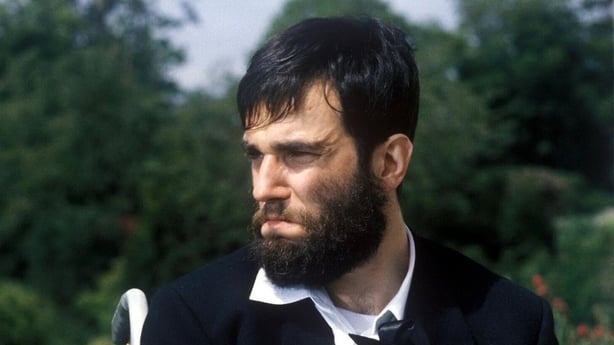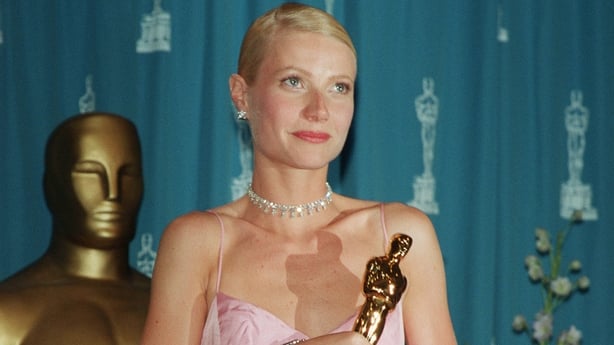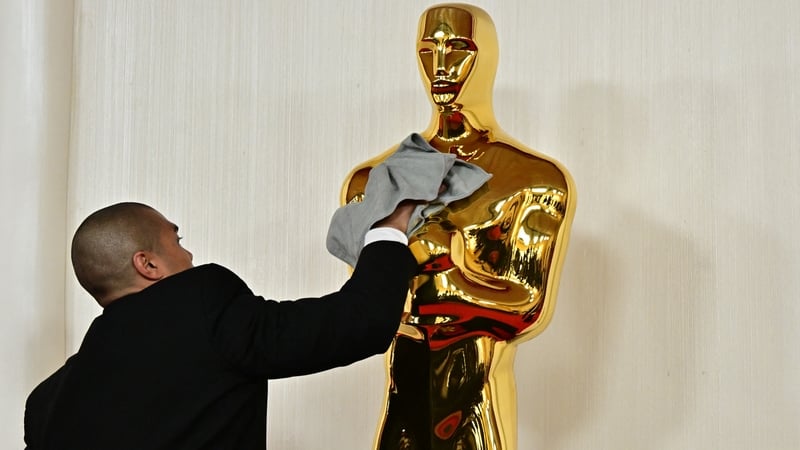When the Oscar winners are announced next weekend, of course they will represent the best and brightest of the movie industry.
What’s not well publicised, however, is the fact that there is a large, sophisticated and expensive machine in place – funded largely by movie studios – to help “encourage” academy members to make that “right” choice.
Because one of the largely unseen parts of the Oscar process is the ‘campaign’ – where studios spend millions of dollars trying to get their film nominated and, ultimately, get them a trophy too.
It’s estimated that more than half a billion dollars is spent on campaigning each year. For context, that’s roughly the combined budget of this year’s ten ‘Best Picture’ nominees – so it’s a huge sum of money even by Hollywood standards.
What does an Oscar campaign entail?
We need your consent to load this rte-player contentWe use rte-player to manage extra content that can set cookies on your device and collect data about your activity. Please review their details and accept them to load the content.Manage Preferences
The Oscar campaign is managed by specific Hollywood consultants who specialise in securing award nominations and victories – and their work can often start a year before the awards in question. It possibly even begins before the film has started shooting.
Because the studios are thinking well in advance about what films have what it takes to be in the mix for an award. And so they’ll want to ensure they time the release correctly – including, perhaps, having it debut at the right film festival to help start building early buzz.
There’s even the term ‘Oscar bait’ for a film that seems to be designed entirely to bag a statue – because the Academy is seen to have a preference for certain types of films; like period dramas, war movies and – of course – films about showbiz.
And if a film is released later in the year it means it’s fresh in the mind of award voters who usually have to submit their picks in January. If a film is being released under the independent or specialist sub-brand of a big studio, that’s also often a sign that they’re eyeing Oscar glory.
Say they’ve gotten some film festival buzz – what do studios do next?
This is where the campaigning proper starts – because it’s at this point that they really start to try and get noticed by the Academy’s voters.
And, the thing is, the barrier to getting a nomination is probably a lot lower than people realise.
There are just over 9,900 members of the Academy at the moment, and they all vote on the nominees to decide each categories’ winner. But that’s phase 2. In phase 1, each branch of the academy votes on their own specific category. That means that actors vote for best actor or actress, directors vote for directors, and so on.
The actor branch is the biggest with around 1,258 members. That means that, with five nominees (assuming everybody eligible votes) you only need 252 picks to get a nomination.
In other words, you only really to turn a relatively small number of heads in order to get a nomination. And that’s where the campaigns come in to play.
There are rules in place around campaigning – for example, you’re not supposed to campaign directly to Academy members; you can’t ring them up and ask them for their vote. You can send out messages – but they have to go through a pre-approved intermediary and studios are only allowed to send one message a week.
You’re not allowed to send out screener videos any more – instead you have to upload your movie to the Academy’s portal, which allows members to watch them at home or in their own time.
You can hold the likes of screenings and invite members along – though even here there are rules in place. For example, you can only provide ‘non-excessive food and drink’ at screenings where you’re seeking a nomination. If you’ve gotten the nomination and are now pushing for the actual award, you can’t even give screening attendees a bottle of water.
And so studios have to find creative ways of getting the message out. That might mean buying lots of ‘for your consideration’ ads in trade publications, for example. Or they’ll hold events like Q & As, roundtable discussions, live performances of the film’s score, and so on.
Do they ever go to extremes to get a nomination?

Absolutely – Netflix has been hunting for a Best Picture award for years now, and they actually bought an award consultancy business outright to try to make that happen. It’s reported that they spent $40m on their campaign for Roma alone, back in 2019.
They’ve gotten 150 nominations in the past 11 years – including 10 Best Picture nods, but still no win. Of the 23 wins they have had, only three have been in the so-called “big categories”, like Best Director, Best Actor and Actress and so on.
But it was the now disgraced executive Harvey Weinstein that was seen to be the master of campaigning.
Miramax was a relatively small player compared to the big Hollywood studios, certainly until it was acquired by Disney. But as we know all too well now, Weinstein was a really aggressive operator, and would try anything to promote his films.
In fact a lot of the rules the Academy has in place nowadays are a response to the work-arounds that Weinstein found to the rules of the time when he was promoting his films.
When he was campaigning for My Left Food, for example, Weinstein got Daniel Day Lewis to speak about disabilities in front of politicians at Capitol Hill. And using talent like that was a big part of his approach – he’d tell the actors involved in the film to clear their schedules for the award season so that he could get them to turn up in all sorts of places to help promote the film.
And, I presume, there were plenty of dirty tricks too…

Absolutely – he was the master of negative campaigning too … although in fairness it’s not like he’s the only one who would have engaged in that.
Perhaps the biggest surprise he ever pulled off was back in 1999, when Shakespeare in Love swept the Oscars, including the award for Best Picture. That was remarkable in itself because comedies don’t tend to do all that well at the Oscars – but what was really significant was the fact that it beat Stephen Spielberg’s Saving Private Ryan out for the top award.
In fact the Gwyneth Paltrow film got seven awards that year – compared to Saving Private Ryan’s five, and Life Is Beautiful’s three. And the feeling afterwards was that it all boiled down to Weinstein’s campaigning.
Part of that was just getting Paltrow to do lots of interviews and events – or getting actors in Shakespearean dress deliver screener videos – but part of his campaign was also build around bad-mouthing the competition.
One of the talking points, for example, was that Saving Private Ryan was all about the first 15 minutes – that really dramatic Omaha Beach scene – and after that the film wasn’t very good.
His company was also part of an attempt to derail the Oscar hopes of the Russell Crowe movie A Beautiful Mind, about Nobel Prize winner, mathematician John Nash.
After that got eight nominations in the 2002 awards, rumours started spreading about Nash himself – with claims that the film skimmed over some unsavoury parts of his character. The Los Angeles Times said it was a representative of Miramax that had drawn their attention to the rumours which turned out to be unfounded, or based on things he said while he was schizophrenic.
Miramax’s In The Bedroom was nominated in a number of the same categories as A Beautiful Mind.
The company said it reassigned the representative and Weinstein apologised to the studio behind A Beautiful Mind – but given what we know now, it’s clear this was part of his approach.
But Miramax experienced the other end of negative campaigning from time to time, too. Good Will Hunting was subject to a whisper campaign that Matt Damon and Ben Affleck hadn’t actually written the script, for example.
Is all of this money and effort actually worth it?

It used to be the case that an Oscar nomination – and especially a win – was a guaranteed box office bump, because it added some prestige and heft to your film … but that’s not nearly as true nowadays.
There are a couple of reasons for that – firstly, if studios are spending millions on your Oscar campaign, they’ve probably put a lot of effort into promoting your film to the public too. So anyone who might be interested already knows about it.
Secondly, the gap between the box office and the Oscars has gotten bigger and bigger in recent years. Think of all the biggest box office draws of the past decade – like the Marvel movies. They’re not Oscar contenders, outside of technical awards for visual effects or costumes.
But really it’s streaming that has undermined the Oscar bonus – because if you’re talking about a film that came out in mid-to-late 2024, by the time it gets nominated in January, and then wins an award in February, it’s probably out of the cinema. And if audiences haven’t seen it at that stage, they know it’s going to land on Netflix or Disney Plus sooner or later, so they’re happy to hang on.
But the campaign is worth it to all the consultants – they get bonuses based on their success in securing a nomination or award.
Another big way that an Oscar win still offers a boost, though, is to the likes of actors and directors.
Because having an Oscar nomination – and especially a win – on your CV, is going to significantly boost the fee you can command for your next film. Having that award in particular makes you part of a very elite club; there are only 86 people who have won Best Actor, for example, and fewer than 40 of them are still alive.
A study a number of years ago suggested that actors can see their pay rise by more than 80% after an Oscar win. The increase enjoyed by Best Actress winners is less than that.
Because of its value, it is apparently now not uncommon for actors to ask a studio about their plans for their awards campaign as part of their negotiations to sign up to a new film.




